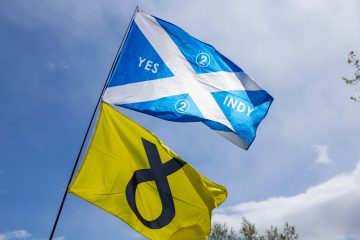
“Laters, baby!”: How the British Prime Ministers’ discourse of delay turned Indyref2 into a peripheral issue
Scotland held a vote on independence on 18 September 2014, with 55 percent of the voters rejecting leaving the United Kingdom. Yet, the issue was thrust back into the spotlight in 2016, when the UK voted to withdraw from the EU, with repeated calls for a second Scottish plebiscite growing louder ever since. As in 2014, the generally accepted (albeit not universal) position has been that Westminster’s approval is needed to put a referendum on Scottish independence beyond legal doubt. The two British Prime Ministers (PMs) who held office during this time (2016–2021), Theresa May and Boris Johnson, consistently reiterated their opposition to another referendum and ruled out granting any such consent. In doing so, they employed various discourse strategies …










